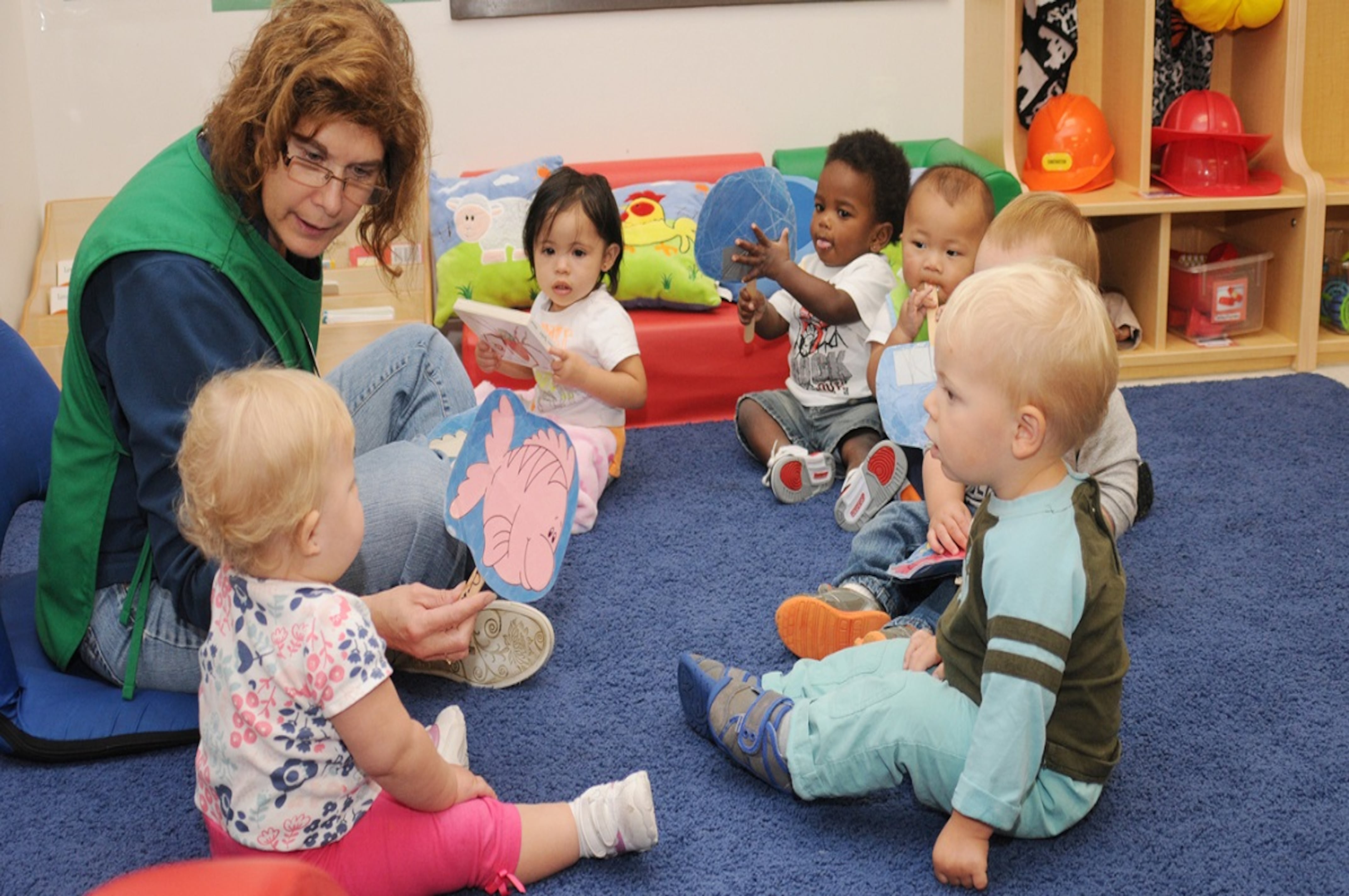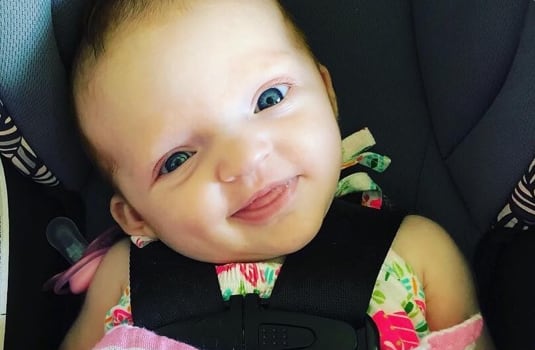The Honolulu Police Department is investigating the Feb. 24 death of a 7-month-old military child found dead in the home of a daycare provider at a military installation in Hawaii, officials said.
A neighbor who lives near the home where the child died said the death came four days after she filed a complaint alleging the provider, a Navy wife, was operating an unlicensed daycare after being shut down at least three times by base officials who allegedly found violations. The daycare is in privatized housing at Aliamanu Military Reservation, part of U.S. Army Garrison-Hawaii.
The neighbor, Katie Camario, told Military Times that she had reported her concerns for more than a year about numerous young children crying and left unattended outside the home, citing various incidents such as the children playing with a lighter, and one child’s head being stuck in playground equipment. Other neighbors also said they reported similar concerns.
The Honolulu Police Department’s Criminal Investigation Division classified the child’s death as an unattended death and have launched an investigation, said Michelle Yu, a police department spokeswoman. She said police have made no arrests and they are not releasing the police report at this time.
The local medical examiner’s office is conducting an autopsy but has not released any official cause of death.
The baby’s name is Abigail. The mother of the baby, reportedly the wife of an Army National Guard member, has requested that her name not be used. Friends have set up a GoFundMe page for the family.
“We don’t know what happened,” Camario, an Air Force wife, said in an interview. She added that she and others are not placing blame on anyone.
Attempts by Military Times to reach the daycare provider for comment were unsuccessful.
Camario said she had filed a report with the military’s Interactive Customer Evaluation website on Feb. 20. She had also reported her concerns to Army Family Child Care officials, as well as to military police, as early as December 2017, she said. Family Child Care officials told her the provider was not licensed to provide child care, she said.
On military installations, in order to provide child care in a home, providers must undergo stringent reviews and training before being certified and allowed to operate the business. They must undergo fire and safety inspections, and provide a learning curriculum tailored for the child’s age.
There are also limitations on the number of children that are allowed at any given time in the provider’s home.
Camario said she noticed in late 2017 that there were 10 to 15 children under the age of 5 who were left outside alone and unattended at certain times of the day at the daycare where Abigail died.
“Those were the ones I could see in the back yard. That doesn’t count the babies and others inside,” she said.
She said she reported what she saw, and by January 2018, nothing had changed. Officials told her they were short on staff, she said.
Then on Jan. 8, 2018, she said, “I heard a little voice saying, ‘Fire, fire!’ I knew these children were outside alone, and I looked out and saw about five little kids playing with a long lighter,” she said, describing the type used to light grills.
"I saw a flame come out of that lighter. I called [Family Child Care] and they said to call the police.
“While [the police] were coming, a child, about 1 year old, put the lighter in his mouth,” she said, adding that she gave a video of the incident to the police.
In March 2018, base officials visited the home and shut down the daycare operations, Camario said. However, the provider gradually began providing care for children again. Officials shut down the provider again, twice, Camario said.
Officials at U.S. Army Garrison-Hawaii declined to comment on whether the provider was shut down or who made the decision; or whether the military’s family advocacy program or state Child Protective Services officials investigated the allegations; or why the provider was able to continue living in the privatized housing unit if she was still providing care after being shut down.
“In light of the ongoing investigation by Honolulu Police Department and U.S. Army Hawaii’s support to that investigation, we cannot comment on the specific facts of this case,” said a spokesman, retired Army Col. Dennis C. Drake.
Information was not available about whether Army headquarters officials are investigating the matter.

During a Feb. 25 town hall meeting on other issues related to family housing, Camario said she asked Hawaii military officials, including the garrison commander, Col. Thomas Barrett, why the situation was allowed to continue after a year of complaints.
“They admitted they knew about all my prior complaints,” she said. “They admitted they’d done things wrong.”
She pressed the leaders about how many incidents it takes before they can take legal action, she said, and they said it was two.
Before Feb. 24, officials visited the home four times, she said.
Camario and Army wife Kelly Norris, who also lives nearby, said there are other unlicensed daycare providers in the community. The bigger issue is the lack of affordable, available child care for military children, they said. That’s a problem the service branches have been wrestling with for decades.
“Specifically, the Child Development Center, which is the most cost-effective option for families of the military, are grossly understaffed and unable to deal with the volume,” Norris said. “We personally know multiple families who have placed their children on a wait list and have been on said list for up to a year or even more.”
Norris also noted the approval process to operate a family child care business in a home on base can take up to two years. Yet Camario and Norris both stressed that the laws and regulations of the state and the military are there to keep children and the child care providers safe.
The lack of child care causes unforeseen problems for families, Norris said, and off-post care is too expensive for the average service member. As a result, some families accept “unlicensed, black market” child care in family homes.
“Either you chance it and put your child in unlicensed care, or you don’t have child care,” she said. "We don’t want this to ever happen again. We want the system changed.
“Why are we making it so difficult for someone to get a license? Why do we not have enough providers at CDCs to deal with the amount of children of military families? Why are we ignoring the warnings of our community members until the worst happens?” Norris asked.
RELATED

Norris and Camario said they were heartbroken, as they tried to help the grieving mother sitting outside the home where her child lay, and taking care of the baby’s toddler brother.
Norris and Camario noted that Talia’s Law, signed into law in December 2016, requires service members and their dependents to immediately report known or suspected instances of child abuse and neglect to their installation family advocacy program office. That was one of the requirements in the law, which aimed to protect military children by, among other things, closing the communication gaps in reporting these incidents. And the law was the direct result of the death of a military child in Hawaii.
“I was following the law,” Camario said. “I feel let down by the system. We’re always told by those taking care of us, if you see something, say something.”
However, that mantra is only effective when officials listen to those who speak up and take action, Camario said.
In her complaint to officials four days before the baby’s death, she asked, “What will it take?”
Karen has covered military families, quality of life and consumer issues for Military Times for more than 30 years, and is co-author of a chapter on media coverage of military families in the book "A Battle Plan for Supporting Military Families." She previously worked for newspapers in Guam, Norfolk, Jacksonville, Fla., and Athens, Ga.





